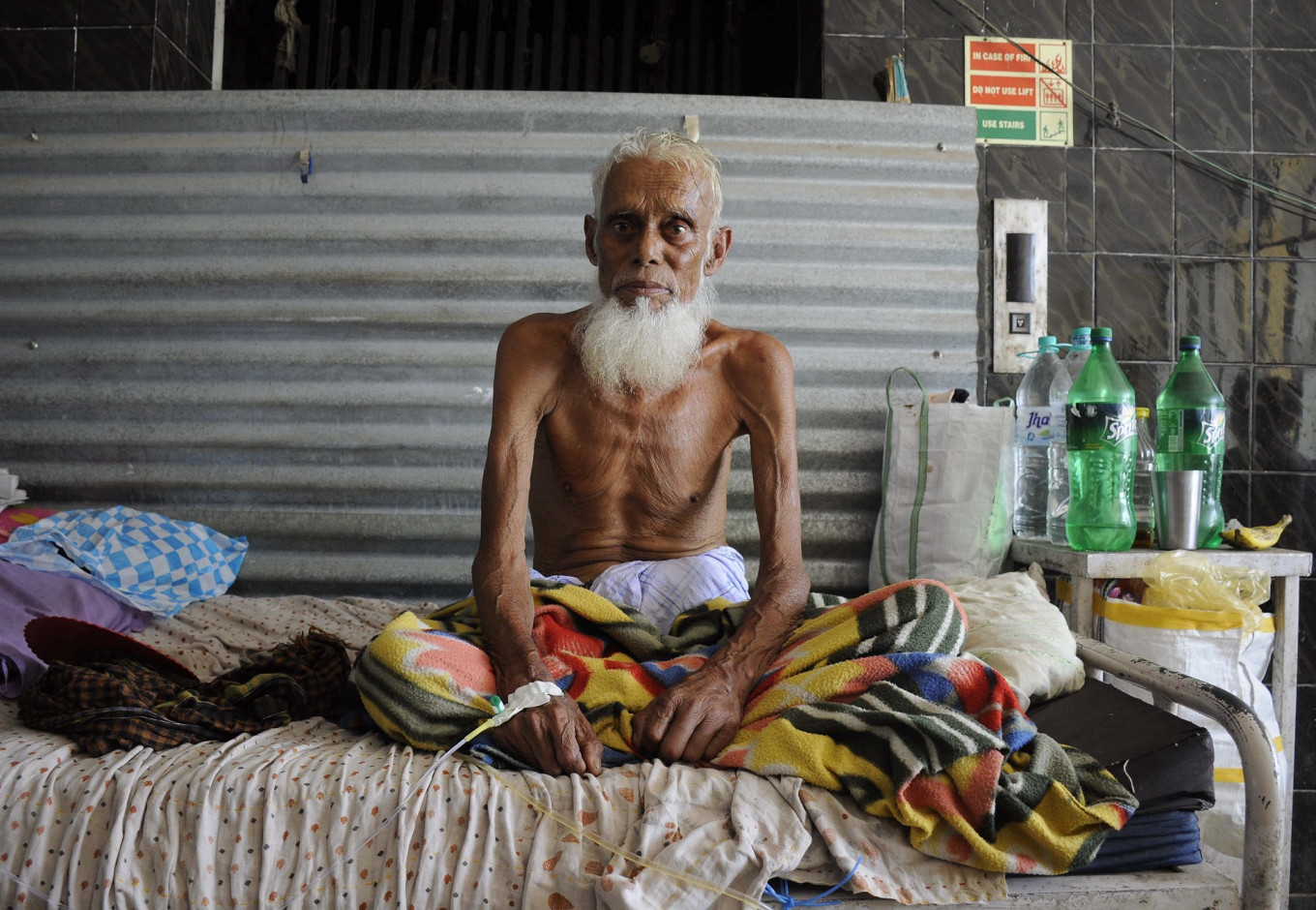Popular Reads
Top Results
Can't find what you're looking for?
View all search resultsPopular Reads
Top Results
Can't find what you're looking for?
View all search resultsJoining forces to prevent 1.4 million TB deaths
According to WHO, TB is one of the top 10 causes of death worldwide.
Change text size
Gift Premium Articles
to Anyone
T
he current COVID-19 crisis is the greatest disruptor the world has seen in generations, according to a recent virtual panel discussion.
“This disruption is, however, forcing us to innovate and to create opportunities to work differently in order to save lives,” International Union Against Tuberculosis and Lung Disease (the Union) executive director José Luis Castro said during the discussion.
The high-level panel discussion, themed Saving 1.4 million Lives, brought together experts and executives from the Union, World Health Organization, the Global Fund, Stop TB Partnership, USAID, Find, among other organizations.
The discussion aimed to address the newest study jointly conducted by STOP TB Partnership with the Imperial College, Avenir Health and Johns Hopkins University on the impact of COVID-19 on tuberculosis (TB) and to call for immediate action to prevent 1.4 million deaths from TB.
The study shows the magnitude of the effect of COVID-19, the sheer numbers of people who will die from TB and the massive setbacks that will occur in TB care as a result.
Castro added that TB was being left behind because it was still seen as a niche issue outside of the global health community.
“TB is a serious public health crisis, too.”
The study reveals that while stringent COVID-19 responses may only last a few months, they would have a lasting impact on TB diagnoses and treatment in high-burden settings, including Indonesia, the world’s third-most TB-burdened countries after China and India.
It is estimated that globally, a three-month lockdown and a protracted 10-month restoration period could lead to an additional 6.3 million people falling ill with TB and an additional 1.4 million TB deaths caused by the COVID-19 pandemic between 2020 and 2025.
This would result in a setback of at least five to eight years in the fight against TB, bringing global TB incidence and deaths to levels not seen since 2013 or 2016.
“We know that basically for these first five months of the year, we will see a drop in TB diagnosis by around 50 percent globally. This means that the other 50 percent are not diagnosed or treated and each of them will infect around five to six other people in this half-year. Especially now with the lockdown, household contacts are at high risk,” Stop TB Partnership chief CEO Lucicu Ditiu said in a virtual interview with The Jakarta Post.
“I am worried for Indonesia, although we have amazing leadership there with great engagement of President Joko [‘Jokowi’] Widodo in pushing forward the TB agenda,” she said.
Indonesia, she added, was among the first ones putting in place some smart approaches for dealing with TB and COVID-19.
“But, I am afraid that there will be a significant impact in diagnosis there as well — for sure — in the months of March and April. And to bounce back will not be easy. It is not just for Indonesia, but globally. But we should not accept anything less.”
According to WHO, TB is one of the top 10 causes of death worldwide. In 2018, there were an estimated 10 million new TB cases, of which 5.7 million were men, 3.2 million were women and 1.1 million were children.
Eight countries accounted for 66 percent of the new cases in the world: India, China, Indonesia, the Philippines, Pakistan, Nigeria, Bangladesh and South Africa.
In 2018, an estimated 1.5 million people died from TB.
Tereza Kasaeva, WHO Global TB Program director, told the Post that COVID-19 had been a test for countries, health systems, key stakeholders and those delivering health services at the front line.
In the presence of new health threats like COVID-19, it has become even more critical to protect those most vulnerable and to ensure the continuity of care for those grappling with ongoing epidemics like TB, said Kasaeva.
“We can see clear disruptions of TB services in low and middle-income countries, but we have a chance to [prevent this from] getting worse,” added Kasaeva.
Focusing on the following key actions, especially in high TB-burden countries — like India, China and Indonesia — is crucial. Among the key actions, she added, is ensuring effective infection prevention and control measures, scaling up simultaneous testing for TB and COVID-19 and more importantly, eliminating stigma and discrimination.
“Stigma and fear around communicable diseases like TB and COVID-19 hamper the public health response,” she said, adding that the governments, the media and the communities have significant roles to play in preventing and stopping stigma.
Kasaeva further stressed the importance of anticipating the negative impact of severe economic contractions, such as loss of income, access to health care and food security among the vulnerable groups.
“We need intersectoral-multisectoral action to address social determinants of TB, mostly undernutrition as a risk factor for TB is vital as it contributes to the increasing number of TB cases globally.
“We plan for increasing investment and providing the best options for care for the millions of people struggling with TB each day, especially those in low and middle-income countries and the most vulnerable.”
Marijke Wijnroks, chief of staff at the Global Fund to Fight AIDS, Tuberculosis and Malaria, said the Global Fund was providing immediate funding of up to US$1 billion to all countries eligible for support.
“This funding is designed to help countries fight COVID-19, mitigate the impacts on lifesaving HIV, TB and malaria programs and prevent fragile health systems from being overwhelmed,” Wijnroks explained.
TB is already the world’s deadliest infectious disease, she added.
“We risk losing the gains we have made over the past years unless we take urgent action.”










